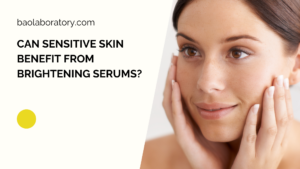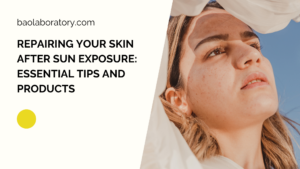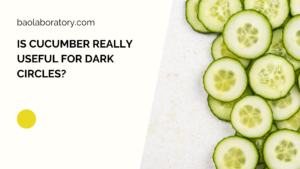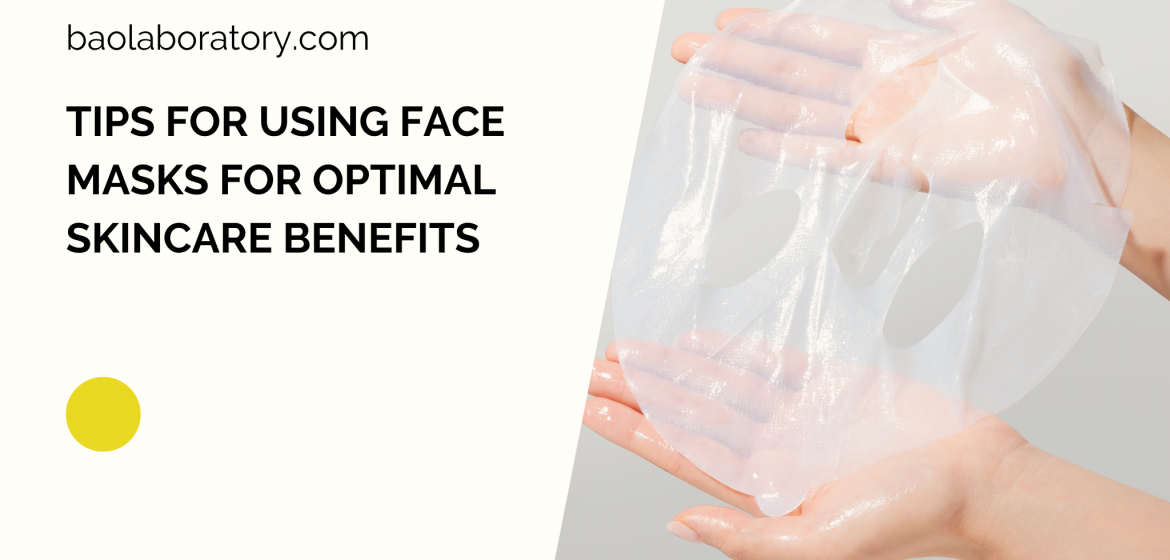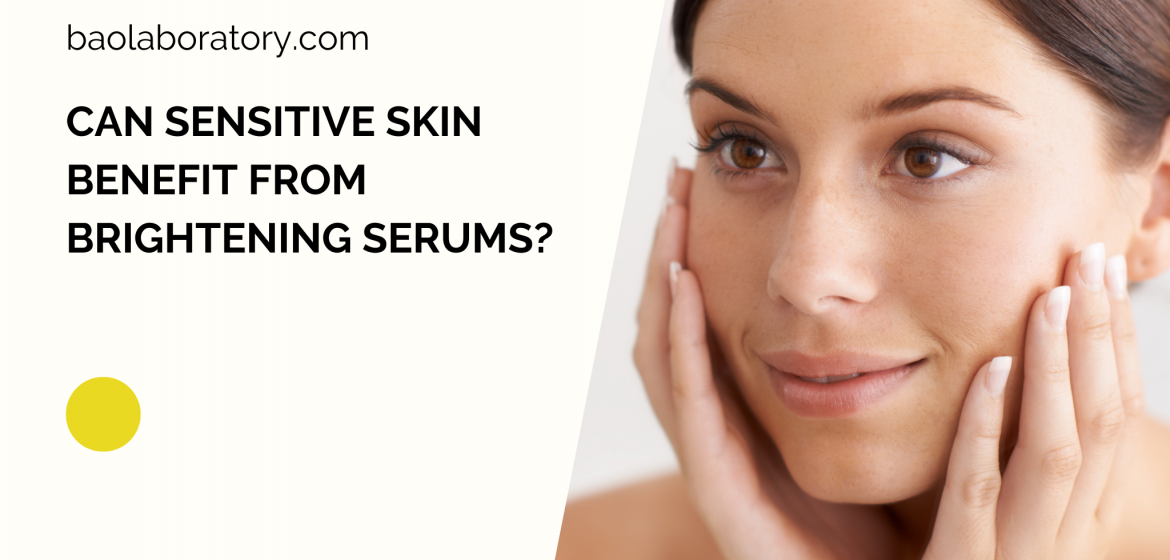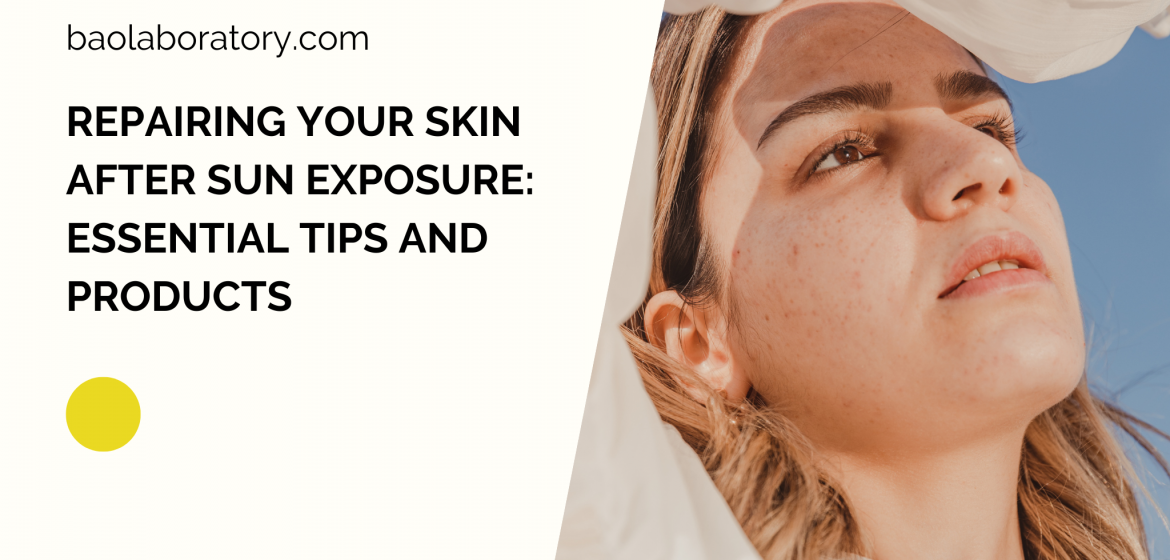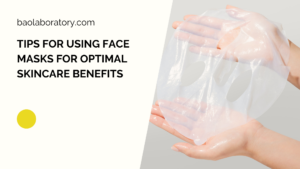
- Home
- /
- Skin Solutions
- /
- Why should You Choose Dermatologically-Tested Products for Sensitive Skin?
Why should You Choose Dermatologically-Tested Products for Sensitive Skin?
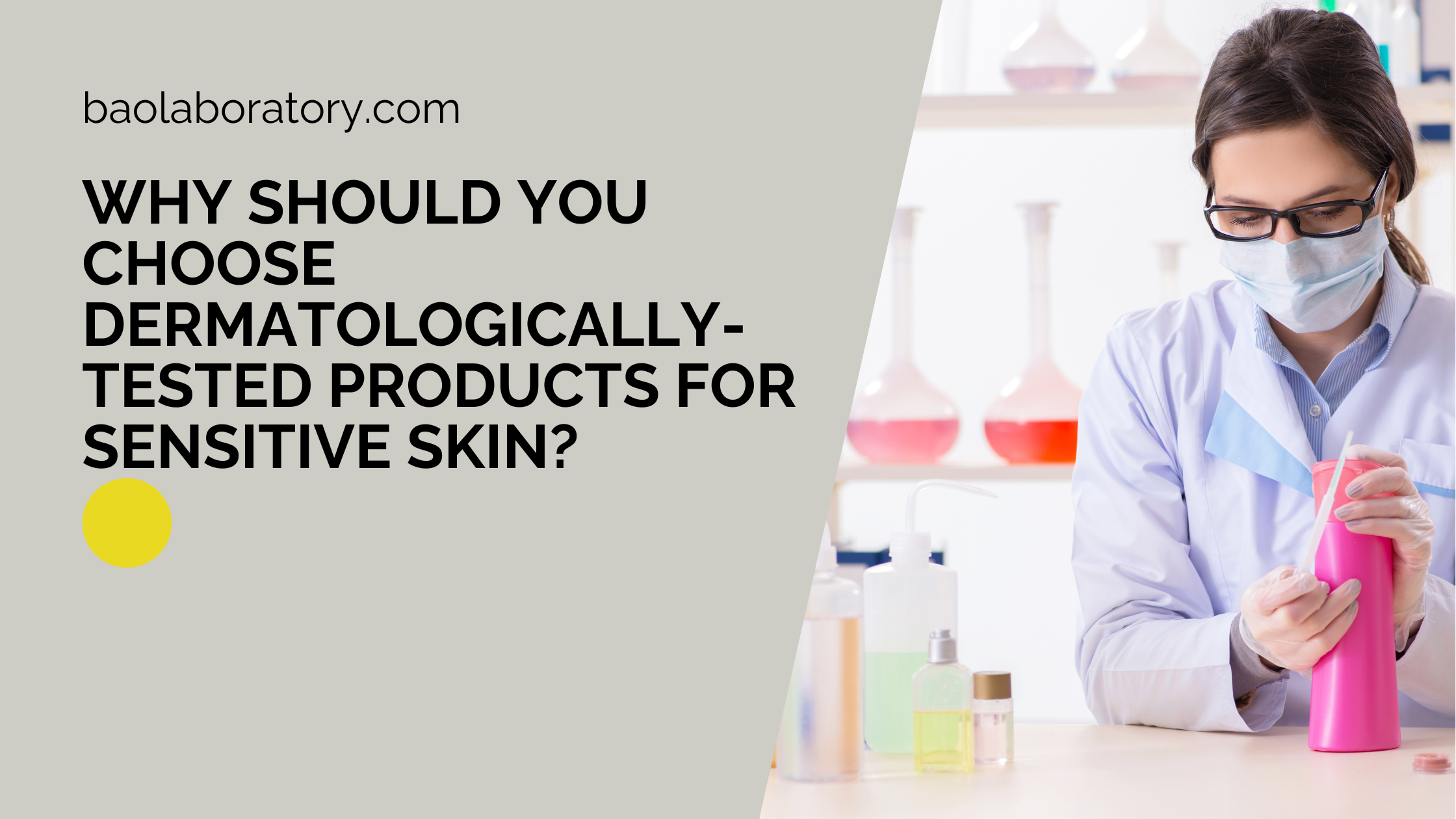
- baoadm
Share:
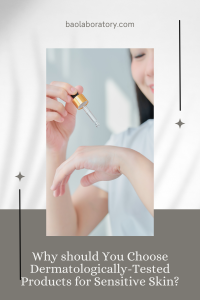 Skin is the first thing that reflects your appearance. Naturally, human skin sheds millions of dead skin cells. If not removed regularly through a proper skincare routine, the dead skin cells eventually form a layer on the skin.
Skin is the first thing that reflects your appearance. Naturally, human skin sheds millions of dead skin cells. If not removed regularly through a proper skincare routine, the dead skin cells eventually form a layer on the skin.
This ultimately results in dull-looking skin, with other skin concerns, like acne, pimples, clogged pores, blackheads, scars, and many more.
To keep the skin clean, you should always follow a good skincare routine. For this purpose, you must always use high-grade beauty products.
Although this is also a reality that the high-quality skin care products are often not pocket friendly, or there is a wide variety of products that anyone can get confused about which one to pick.
If you have little knowledge of the product’s ingredients, you might get skin irritation or allergies.
Can anyone get skin irritation after using a beauty product?
NO! Because if you are aware of your skin type, you are not at risk of any irritation or allergies. However, people with sensitive skin types must be cautious before using a new product.
That’s why it is most often recommended for people with sensitive skin to consult a dermatologist or use “Dermatologically tested” products before application.
Why are People with Sensitive Skin more at Risk?
Sensitive skin is more prone to show hypersensitivity to any ingredients; even the mild ones can cause a serious reaction.
NICNAS (part of the Department of Health) regulates cosmetic ingredients in Australia. It is their responsibility to assess the safety of all new ingredients. However, this doesn’t mean that all cosmetic ingredients are completely harmless.
There are many ingredients that can cause skin irritation or allergic reactions. Therefore, always ensure a product is suitable for sensitive skin and it must be dermatologically tested in its final form.
What are Dermatologically Tested Products?
Many skincare and cosmetics products have this certification to present they are highly effective and non-irritating for most skin types.
Buying dermatologist-tested products takes a lot of research and testing to determine if a particular brand is suitable for most skin types. Therefore, it’s important to understand what this means and what it doesn’t.
Dermatologically recommended simply means, a doctor who has specialized in skin health has signed off on the product.
Dermatologists administer the Repeat Insult Patch, a stern testing method within the industry and by the beauty experts everywhere. But how does the RIPT testing work?
This clinical study was conducted to figure out whether the product may cause irritation when used in the patch test. Once all patch tests have been completed, a dermatologist must approve the results.
Signs of having Sensitive Skin?
There are mainly four types of skin; normal, dry, oily, and combination, but it’s also possible to have a combination of these.
Apart from these types, the sensitive skin type is generally more prone to reactions like itching, redness, skin bumps, or skin erosion.
You can easily figure out if your skin is sensitive or not if you have these signs like:
- Redness
- Flaky skin
- The rough or wrinkled texture
- Itching or stinging sensation
- Rashes
- swelling
- Irritation or burning sensations.
If you face such skin concerns, we always recommend seeing a dermatologist before applying a new product.
Or you can simply go for some simple tests at home to determine.
How to Determine Skincare Products for Sensitive Skin at Home?
To check a skin care product for sensitivity, dermatologists recommend the following tips:
- Choose the test area and apply the product to a test spot twice daily for at least 7 days. Take a quarter-sized spot on your skin where the product won’t wash away easily, such as the elbow bend or arm’s underside. Use the average amount, and you will notice the results after regular product application.
- Leave the product on your skin. If you’re testing something that you would wash off, like a face wash or a cleanser, keep it on your skin for 5 minutes or as long as recommended on the packaging.
- Monitor the product for 7-10 days. You can freely use the product if you don’t notice any skin reaction.
- Some ingredients, glycolic acid and retinol can cause irritation to your skin, particularly if your skin is sensitive. However, this is normal and temporary, and symptoms mostly disappear after some time.
- If you develop a skin reaction, gently wash off the product as soon as possible, and don’t use it again. Applying a cool compress or aloe vera gel will relieve your skin. If the reaction is severe, you must see a dermatologist to help manage your symptoms.
Which Products should be Strictly Avoided with Sensitive Skin?
Some products that you must avoid using to avoid the risk of any allergies or skin reactions are following:
Essential oils
Tea tree, citrus, mint, and lavender oils should be avoided or used carefully. Diluted Tea tree oil can be safe for the skin. However, many acne products contain amounts of tea tree oil that can cause skin dryness and irritation.
Fragrances
If a product is heavily scented, it might contain harsh chemicals that aren’t clearly mentioned — and these can irritate all skin types, especially the sensitive skin might show severe reactions.
Sunscreens
Chemical sunscreens include a variety of chemicals, which absorb ultra-violet light and release it as heat after a chemical reaction occurs.
They have many more active ingredients compared to mineral versions, which increases the chances of irritating sensitive skin.
However, mineral sunscreens contain two active ingredients, titanium dioxide, and zinc oxide, which work by physically blocking UV rays. So, if you are a sensitive-skin type person, you must preferably use mineral sunscreens.
Harsh exfoliants
The usage of an exfoliator that is too abrasive can cause your skin to be immediately inflamed or irritated.
Alcohol
Products containing alcohol (like astringents) can dry out the skin and cause a harsh reaction to sensitive skin. Always check that none of your products has denatured alcohol.
Always pick a product that does not contain any of these ingredients. You should learn to read the labels and which ingredients to avoid.
Which Natural Products to Choose for Sensitive Skin?
For sensitive skin types, the safest options are natural beauty products and remedies. That’s because they are mild and don’t leave harsh results. However, performing a patch test before using any of these products is still recommended.
Some of the natural ingredients that are considered safe for sensitive skin types are:
- Aloe vera
- Beeswax
- Shea butter
- Marshmallow product
- Squalane
- Chamomile extract
- Calendula extract
Other than that, some other products contain natural ingredients and are “safe to use” for sensitive skin.
One of such best-recommended products is PROB5HA Full Spec Quenching Serum.
It contains natural ingredients like licorice extracts, hyaluronic acid, Provitamin B5, Sodium PCA, and Allantoin.
Another dermatologically safe product for sensitive skin types is Lotus Squalane Healing Facial Oil.
It contains mainly Lotus wax, Squalane, and Jojoba. Lotus wax and Squalane make it an ideal product to use on sensitive skin.
Conclusion
With sensitive skin, you must be cautious when picking up any product.
Always opt for skin care products that are dermatologically-tested and recommended with natural ingredients as mentioned in the article.

